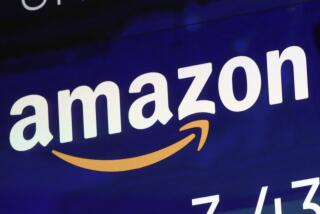Two Big Diagnostic Firms Plan to Merge : Medicine: National Health and Roche Biomedical would form the largest chain of test labs in the United States.
- Share via
Consolidation in the $30-billion medical-testing business accelerated Wednesday as La Jolla-based National Health Laboratories and Swiss-owned Roche Biomedical Laboratories said they would merge into the nation’s largest diagnostic laboratory chain.
Company officials and analysts said the merger idea was a response to intense price pressure coming from cost-conscious managed-care firms and the federal government.
The combination of the third-largest and fourth-largest U.S. medical testing companies would form a chain with 39 medical laboratories and annual revenue of more than $1.7 billion--roughly half from each partner. The labs will have a coast-to-coast geographic reach and be able to perform blood analyses and drug-use, genetic and allergy testing.
The merger will “make the company significantly more competitive in a swiftly changing and ever-more-demanding health care marketplace,” said James Maher, National Health’s chief executive.
Maher, who will be chairman of the combined company, said the deal is expected to generate $90 million in savings over two years. National Health had sales of $638 million for the first nine months of 1994.
“The low-cost producers are going to be the ones to win managed-care contracts,” C. Fred Toney, research analyst at Pacific Growth Equities in San Francisco, said.
James Powell, president of Roche Biomedical, will be president and chief executive of the new firm. Roche Biomedical, a Burlington, N.C.-based unit of Roche Holding A.G. of Switzerland, had sales of $550 million for the nine months ended in September.
Damon Brundage, a PaineWebber analyst, said there is “considerable overlap” of facilities. He expects to see at least four labs closed.
A wave of consolidations has been sweeping the medical industry--from hospitals to group practices to insurers--as cost constraints force companies to look for ways to improve their efficiency. Much of that consolidation has been driven by the rapid growth of U.S. enrollment in health maintenance organizations, which promise to minimize costs by limiting their members’ choice of doctors and closely monitoring hospital stays and the necessity of medical tests.
Under HMO plans, doctors are asked not to order diagnostic tests deemed unnecessary to the patient’s care. That can mean fewer doctors’ orders for laboratory tests and less business for the labs. The HMOs are also pressuring the medical laboratories to charge less for performing tests.
Moreover, the Clinton Administration has cut reimbursement rates for laboratory procedures under the federal Medicare program for the elderly and disabled.
Such factors have made it difficult for small, independent labs to survive and have led to the development of ever-larger laboratory chains. Analysts said the combined revenues of National Health and Roche would exceed those of the other leading U.S. diagnostic firms, operated by Corning Inc. and SmithKline Beecham PLC.
National Health has been struggling to repair its reputation since December, 1992, when it pleaded guilty to federal charges of Medicare fraud. The company agreed to pay $111 million to settle accusations that it fraudulently billed Medicare by bundling fees for unnecessary medical tests with charges for needed ones.
National Health stock climbed $1.50 to $13.50 a share Wednesday on the New York Stock Exchange.
The merger is subject to approval by federal agencies and National Health shareholders. Investor Ronald O. Perelman’s MacAndrews & Forbes Holding Inc., which owns 24% of National Health, will back the plan and retain 12% of the new firm.
More to Read
Inside the business of entertainment
The Wide Shot brings you news, analysis and insights on everything from streaming wars to production — and what it all means for the future.
You may occasionally receive promotional content from the Los Angeles Times.









